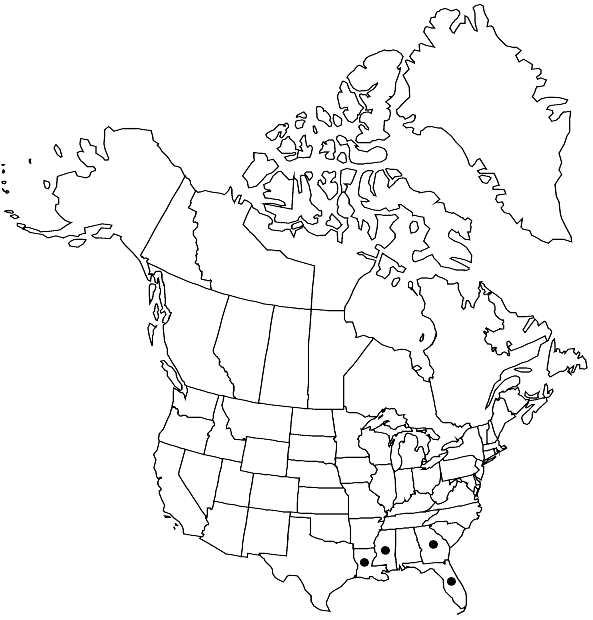Syrrhopodon ligulatus
Syll. Gen. Sp. Crypt., 47. 1856,.
Plants gregarious to caespitose, dark green to brownish green, to 0.5 cm. Leaves monomorphic, 2 mm, crispate when dry; distal lamina not reflexed at shoulders, often folded-falcate when wet, ligulate, apex rounded or retuse; margins bordered at shoulders and irregularly distally with hyaline cells, entire or irregularly dentate at shoulders, entire distally except for projecting papillose cells; medial cells obscure due to papillosity, 5.5–6.5 µm, with bulging simple or multifid papillae ad- and abaxially; cancellinae rounded distally. Gemmae clavate, smooth to slightly papillose, sparse, subterminal on adaxial surface of leaf apex.
Habitat: Not producing sporophytes in flora area. Fissures of tree bark, sandstone, humid forests along rivers and in swamp forests
Elevation: low elevations (0 m)
Distribution

Fla., Ga., La., Miss., Mexico, West Indies, Central America, South America.
Discussion
Syrrhopodon ligulatus is not often collected because of its small size and obscure habitat, which is mostly on bark fissures. The short-ligulate bluntly tipped leaves, crispate when dry, and with restricted hyaline border, make this species easy to recognize.
Selected References
None.